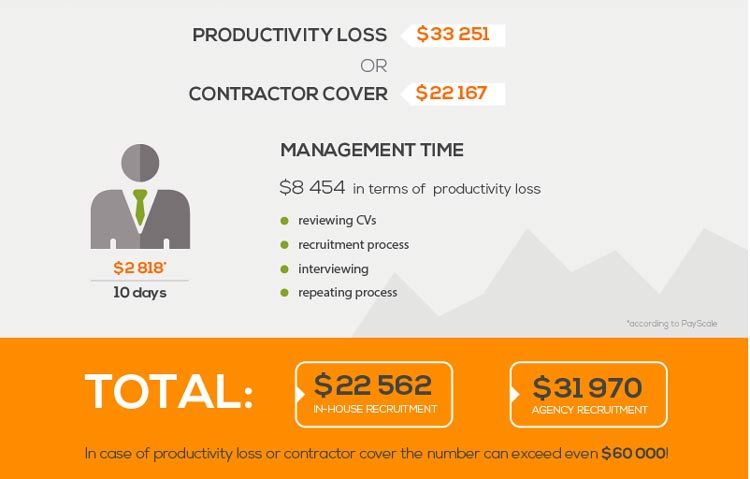Why Does Your Product Company Need to Hire Outsource Developers Even if You Have In-house Devs?
Every entrepreneur knows that the team is one of the most important parts of any business. While you might have great market opportunities, the team is what makes a great product or a great service.
Hiring and managing a team is a pain for many entrepreneurs, especially in software development, where the market is overheated and finding skilled professionals is a challenge for both small startups and big enterprises. In this article we’ll talk about pros and cons of hiring in house vs outstaffing for different types of businesses and goals they may have.
In-house vs outstaffing development: what’s the difference?
The main difference between an outsourced team and an in-house team is, of course, the location. Though you can technically “outsource” development to the office next to you, usually it doesn’t happen that way. Instead, businesses hire offshore developers that charge lower rates than the company across the road.
However, there’s much more to weigh in the in-house vs. outstaffing comparison, so let’s describe both types of teams in more detail.
In-house teams
The recent trend among product companies is to hire in-house developers — and other specialists. For example, instead of hiring a marketing agency, product companies prefer to grow a marketing department within their own team. This way they get more involvement from their specialists and avoid communication challenges.
Companies are literally fighting for skilled developers, so to keep your team, you’ll need to make sure they’re satisfied
An in-house development team will be fully involved in your product, and you’ll have the opportunity to not only share your specific needs with them but also share the values of your company and product.
Another benefit of an in-house team is ease of communication. If developers are located in your office, they’re accessible to you and other team members. Communication takes less time and requires less organization when everybody is at the same location.
On the other hand, to keep developers in your company, you’ll need to take care of everything from their salaries to bonuses and perks. Companies are literally fighting for skilled developers, so to keep your team, you’ll need to make sure they’re satisfied.
To sum up, here are the pros and cons of an in-house team:
- In-house developers are accessible and close
- Communication is fast and convenient
- An in-house team knows the ins and outs of your product and is fully involved
- Hiring is a challenge
- You’re responsible for retaining your team
- It may be hard to balance development with the constant training of new developers
As you can see, the benefits of in-house development are equal to disadvantages, so the choice depends on a particular business’s needs and abilities.
Outsourced teams
Often, companies choose software outsourcing to save money. If developers in your region are too expensive or there’s a lack of senior developers, outsourcing development is a great option. Some startups need to save their money for marketing, and in this case it’s often more cost-effective to hire an outsourced software development team.
This is especially true for businesses whose activities mainly take place offline — for example, rental companies, offline retailers, and transportation and delivery services that are focused on logistics and use mobile apps and websites to take orders and enhance the customer experience.
Such companies often don’t have enough technical expertise to evaluate developers at the hiring stage and then teach them. An outsourced team, on the other hand, is already trained. Software development outsourcing companies handle all the hiring and management processes themselves, which can save lots of time.
Outsourced developers also often can suggest more approaches and solutions because they’ve already faced similar problems while developing products for different domains and using different technologies.
Another advantage of outstaffing developers is their variety of knowledge. Usually, outsourcing companies offer many different technologies, from web development in various languages to mobile development, whether native or cross-platform. This makes the development team flexible: instead of developing your product in the one language your team knows, you can always change the technology.

There are some drawbacks to outsourced development too. Sometimes, the mentality of an offshore team differs from that of your in-house team, and this affects communication. Miscommunication is easy if the way companies work is too different.
Also, an outsourced team may react slower to urgent business needs even if the reason is purely practical, such as a time difference.
Let’s sum up the advantages and disadvantages of outstaffing development:
- Broad expertise and different technologies at your disposal
- More experience on different projects and in different domains
- Lower rates (in many cases)
- All hiring and management issues are on the vendor’s side
- Possibility of poor communication due to different mentality and time zone
- Less involvement in your business
Outsourcing your development partly to a third-party provider is often a great solution for particular situations, and you don’t need to choose outstaff or in-house development. Let’s see in what cases outstaffing vs inhouse difference can make a perfect combination.
When should you consider software developer outsourcing?
If you already have an in-house team, you still might need to outsource some development or maintenance process to an offshore team. Here are the most common situations in which an outsourced team may be the right answer.
1. You don’t have specific technical expertise in your company
Technical expertise means knowledge of certain programming languages, architectures, or integrations with third-party services like payment systems, CRMs, and chatbots, which may be written in a completely different language than your product. For example, at Mobindustry, we have experience integrating a cross-platform chatbot written in React Native into a native mobile application.
If you don’t have a developer with specific knowledge required for your project, outsourcing companies can help you find one quickly and start development almost immediately. To do this, your in-house developers will simply have to provide open APIs and a technical specification so that an offshore developer can work on separate tasks in your project.
The advantages of outstaffing development will allow you to develop a specific feature fast, but only if you take care of integrating a new member into your existing team.
2. Time to market is your highest priority
If you need to launch your product as soon as possible but your in-house team can’t meet the deadlines because of the scope, you can hire an outsourced developer. As outsourcing development companies have many developers, you can scale your team whenever you need.
This saves a significant amount of time, as the hiring process for an in-house team is much longer. Moreover, to hire an in-house team, you’ll need the resources of your HR department as well as your own developers to assess candidates and make sure they’ll stay with your company. Outsourcing almost entirely eliminates these expenses.

When time to market is essential, the outstaffing approach is one of the best: it provides you with a new team member in an instant. This outstaff developer usually takes part in daily standups, meetings, and calls for full integration into the development process. It’s common practice to invite an outstaff developer to use your company’s project management tool (like Jira).
You will still need to use your in-house developers to assess outsourced engineers, but it will be much faster than searching for candidates and interviewing them on-site. Also, just like with a new in-house engineer, an offshore developer will need time to study the project and get used to it.
3. You need to develop a whole new platform
In this case, we’re talking about outsourcing a more complex project. Many of our clients, for example, hire web developers in-house who are responsible for the backend and the website. However, they don’t have any mobile developers, and development of the mobile app is completely outsourced to us.

This is common practice for companies, as hiring a whole new mobile development team may be expensive in terms of both time and money. Outsourcing companies already have experts that can advise on different technical solutions. For example, they can help you choose between platforms or even between native and cross-platform development.
If you want to eventually hire an in-house team for a new platform, it’s convenient to start with offshore developers so they can begin to lay the architecture and later help you assess the developers you’ll hire in-house and even consult them on further development.
4. Your in-house developers are too expensive for minor tasks
It’s not cost-effective to pay a full-time developer for simple tasks like app maintenance and support while your product is growing and you need developers to focus on new features. This is when an outsourced developer can help you.
Outsourced developers often cost less than in-house professionals, making it more cost-effective to delegate maintenance, support, and the implementation of minor features to them.
This will save you both time and money, as maintenance will be cheaper and will also take place simultaneous to the primary development process.
5. The local market is overheated
When the hiring market is overheated, prices go up and companies start to compete for talent. This is exactly what’s happening in many countries with software developers. Because software development is a lucrative profession, many people enter the development market each year, so it’s full of junior developers; however, companies compete for more experienced developers.
This leads to high costs and demands as well as hiring challenges: most experienced developers are already hired, and companies offer them great conditions so they don’t leave. A shortage of talent is one of the growing problems in many countries. IT professionals take the second place in talent shortage rating of professions worldwide.

If you feel the pressure as well, outsourcing can be your way to get professional, skillful developers for expanding your in-house team. Though it’s easier than trying to enter the HR competition for local talent, the outsourcing approach also has its challenges. Let’s talk about them.
What are the risks of outsourcing?
Though mixing an in-house and outsourced team for developing a single project is convenient in many respects, there are certain risks that may make you want to continue looking for local candidates and put your project on hold until they join your in-house team. Let’s discuss the risks and ways to bypass them.
1. A different mentality can make communication hard
If you outsource your development to a company on another continent, chances are they’ll think differently from you. Some cultures are extremely punctual; others have a more laid-back approach. In some cultures, people speak directly; in others, such communication would be considered rude.
All this makes communication harder, and there’s only one way to find out whether a remote company is suitable for you: do an interview and assess not only the hard skills but also the soft skills of developers and managers.
2. Tech skills are hard to assess
This is true for outsourcing on the whole, but if you have your own in-house development team, it’s easier to verify the hard skills of your vendor.
To make sure you hire a professional developer who’ll create maintainable, high-quality code for your product, you should do two things:
- Hold a technical interview with the help of your in-house developers
- Hire an offshore developer for a small project and see the results
This will help you find out whether you can both trust the developer with your project and the outsourcing company with management. Testing a company on a small project is a common practice.
3. Intellectual property is shared with third parties
When you outsource development and support, you need to give access to your current project so an offshore company or a single developer can work with it. Some companies are concerned with sharing their code, business processes, and even ideas, so they prefer to hire in-house developers.
If you feel the need to expand your current team with outsourced developers, be sure to sign a non-disclosure agreement (NDA). At Mobindustry, we sign an NDA with each client. This document includes penalties for violating the contract and the client’s intellectual property rights. All code that’s produced by an outsourcing company belongs to the client, so there’s no way a company can legally use your code or ideas for their own profit.
4. Remote developers may lack involvement
Lack of involvement is another risk, making an outsourcing company a pure code producer. In some cases that’s enough. But if you’ve never launched an online business before or you’re unfamiliar with a certain platform, you might need not only technical advice but business advice too so that your software fully corresponds to your business goals.
This is where your in-house developers may have more insights and knowledge. However, involving remote developers is also possible — and perhaps even necessary — for the best results. For better results, try with a remote work platform and develop the involvement of your virtual team.
We encourage our clients to come to our office to meet the team personally and are glad to send our developers to our client’s office for a week or more. This allows developers to get accustomed to the project and meet the client’s team so that later we can consider all the needs of the business.
How to choose a reliable outsourcing vendor
Choosing the right outsourcing partner for your project is 60% of success. Because outsourcing your project means remote work, you need to make sure your partners are reliable, professional, and honest. A good practice is to make a list of all outsourcing companies that specialize in developing the software you need. You can shortlist vendors by searching for them in Google, asking your business partners for recommendations, or researching the listings of software developers such as Clutch.
After you’ve shortlisted the outsourcers, send them an RFP (Request for Proposal). This will help you determine whether a vendor is suitable in terms of their experience, availability and price. It’s also a good practice to interview each vendor to evaluate the quality of your communication. Here are also the most important things you should figure out about each vendor, to make a final decision.
1. Service quality and experience
You can determine quality of your vendor’s work by looking at their portfolio, researching the reviews other clients posted on various listings, and by organizing a technical interview with a software development professional that you trust. We at Mobindustry are always ready to be examined by our clients from the technical standpoint, to prove the quality of our work.
2. Rates and efficiency
Many companies choose outsourcing to save money and allocate them for marketing and other activities. However, choosing a company with the lowest rates may not be a path to success. Lower hourly rates don’t always mean spending less: a team that works for $20 per hour may spend 100 hours on your project, while another team with a $40 rate will do the same in 35 hours. This is why it’s important to not only compare the rates, but also the estimates different companies provide after you shared your idea.
3. Contract and terms
Request a sample of contract and confirm that it has terms dedicated to:
- intellectual property rights
- protection of confidential information
- termination clauses
- regular progress reports
Your vendor should also offer to sign a non-disclosure agreement before your communication starts, so you’re sure your business idea is safe.
After you confirmed that your vendor is reliable, has good reviews and a thought-out contract that protects you, you can choose a right partner who will be able to deliver software on agreed terms and deadlines.
So should I outsource development?
The answer depends on your circumstances. But if you feel like you don’t have the time, opportunity, or need to hire another in-house developer, outstaffing or outsourcing is for you. In this article we’ve covered in house development vs outstaffing discussion, so now you should have an idea of how you can use a remote provider to your benefit.
Many businesses hesitate to outsource their projects for fear of disclosing their intellectual property or facing communication challenges that come with working remotely. However, outsourcing continues to be one of the most effective ways to expand an in-house team and get a project done faster.
Moreover, good outsourcing companies are perfectly aware of the risks. That’s why they’re ready to meet their clients in person, sign an NDA with penalties, and make sure the client’s expectations are met. To successfully outsource software development, you need to choose the right vendor. Don’t just look at an hourly rate when searching for outsourcing developers, but also look at their efficiency and communication skills.
If you need to expand your team or quickly release your product to the market, get some help for your in-house team. Want to know how good of helpers we are? Don’t hesitate to contact us.


